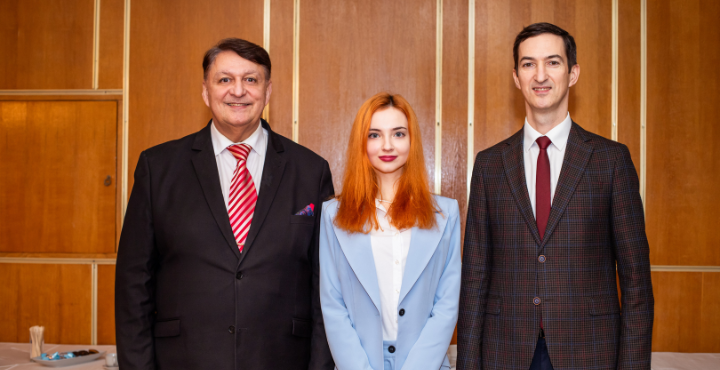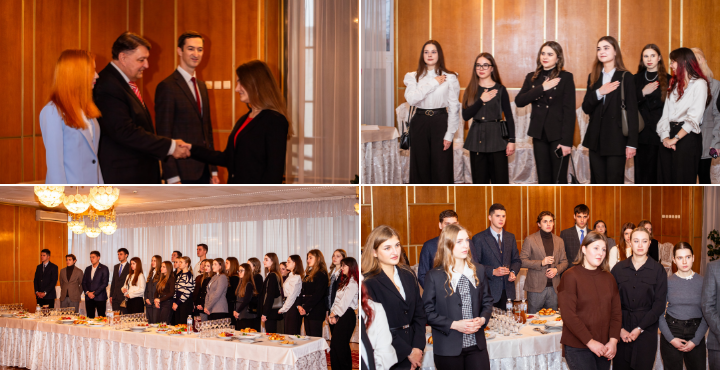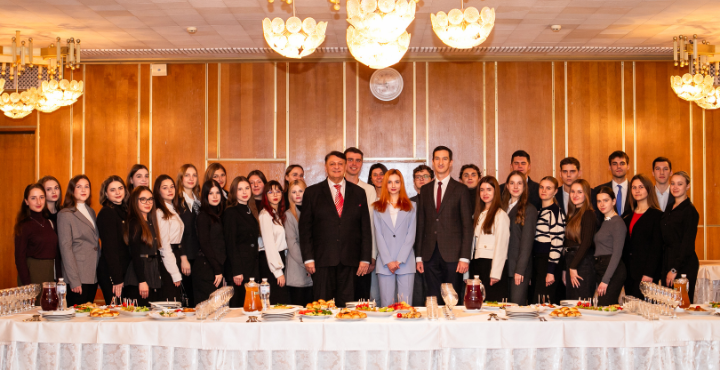Masterclass at the IIR based on the author’s program “State and Diplomatic Protocol for International Relations Specialists”

As tradition holds, the Educational and Scientific Institute of International Relations conducted its regular semester practical training in the format of a role-play simulation: “DIPLOMATIC RECEPTION: FEATURES OF MODERN DIPLOMATIC PRACTICE.”
The coordinators and authors of the educational and scientific project are PhD in History, Assoc. Prof. Viacheslav TSIVATYI, and PhD in Political Science, Assoc. Prof. Roman PETYUR (Department of International Organizations and Diplomatic Service, Institute of International Relations; Head of Department – Prof. Viktor MATVIYENKO).
Words of gratitude for supporting interdisciplinary cooperation and personal participation in the training were extended to PhD in Political Science, Assoc. Prof. Maria ZAITSEVA (Department of International Information, ESIMR).
Participants of the training included first-year Master’s students of the following educational programs: “International Economic Relations”, “Diplomacy and International Cooperation”, “International Regional Studies.”
Topic of the role-play training: “Diplomatic Reception: Traditions and Innovations of Today” (based on a model of the diplomatic reception organized by the Embassy of the Republic of Poland in Ukraine on the occasion of Poland’s Independence Day, 11 November 2025).

During the session, the students had the opportunity to apply their theoretical knowledge in etiquette and diplomatic protocol and to develop the following professional competencies:
adherence to rules of business dress code (women’s dress code; men’s dress code; dress code for diplomatic receptions and formal events);
greetings, introductions, communication, exchange of business cards;
observance of protocol norms concerning the placement of national flags and performance of national anthems;
preparation and delivery of welcome speeches, public addresses, and toasts;
mastery of basic table etiquette during a diplomatic reception;
secrets and national features of table etiquette;
guest etiquette, networking rules;
specifics of intercultural communication;
cross-cultural communication, flower etiquette, gift-giving etiquette, table and dining etiquette, etc.
The administration and staff of the ESIMR Food Service Center of Taras Shevchenko National University of Kyiv contributed to organizational and protocol matters, assisted in arranging the diplomatic reception, prepared exceptionally delicious dishes and treats, and handled table setting and banquet hall decoration.

The academic discipline “DIPLOMATIC PROTOCOL AND ETIQUETTE” is an important component in the training model of diplomats and international relations professionals.
Students specializing in field S3 “International Relations” were able to test in real-life conditions all the algorithms required for organizing and conducting a diplomatic reception today.
Diplomatic reception is a widely accepted and highly convenient form of diplomatic activity. In implementing various foreign policy events, the diplomatic service of every state adheres to certain traditions, conventions, and rules, the totality of which is referred to as diplomatic protocol or simply protocol. Diplomatic protocol is the framework within which every foreign-policy activity of the state and its representatives takes place. It is in this that the political significance, effectiveness, and importance of diplomatic protocol and international etiquette lie.
Diplomatic protocol and diplomatic receptions, as a form of diplomatic protocol, are vital tools for implementing the fundamental principles of a state’s foreign policy.